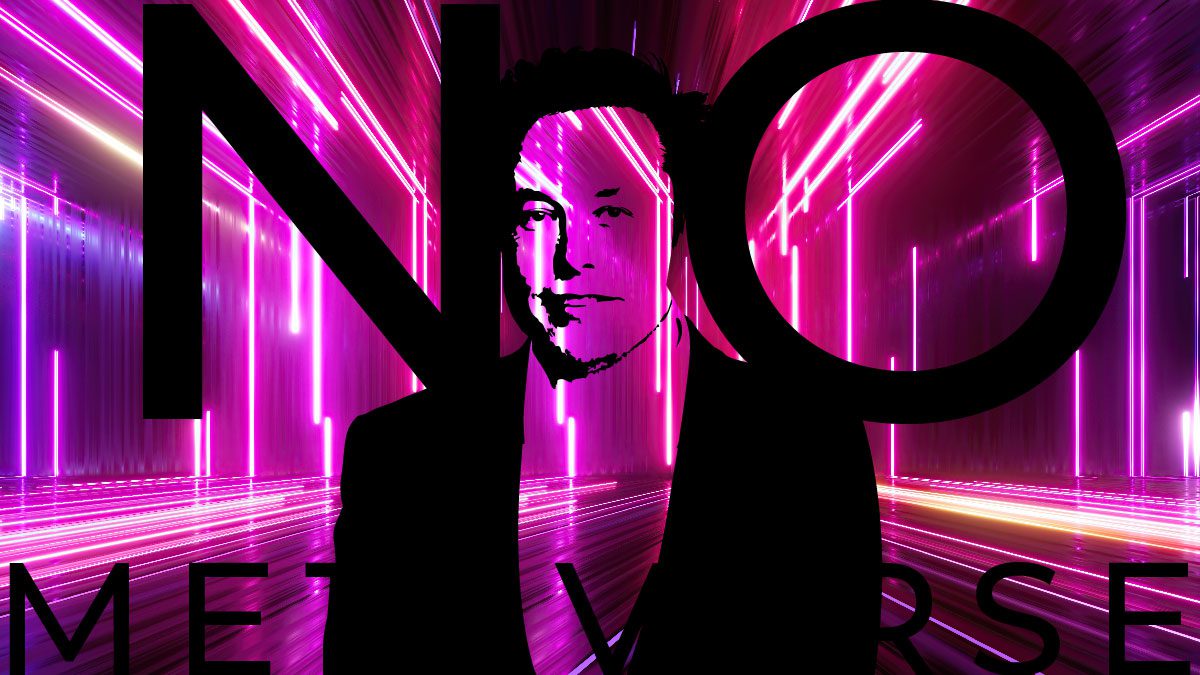Top 10 Global Celebrities Endorsing And Promoting Metaverse
The concept of the Metaverse refers to a virtual reality-based successor to the internet, a vast interconnected digital space where people can interact with each other and computer-generated environments in real-time. It is an immersive, shared, and persistent virtual world that blurs the line between physical and digital realities. While the term “Metaverse” was coined in Neal Stephenson’s science fiction novel “Snow Crash” in 1992, the idea has gained significant attention and development in recent years.
The Metaverse encompasses a wide range of technologies and platforms, including virtual reality (VR), augmented reality (AR), mixed reality (MR), and other emerging technologies. It provides users with the ability to navigate and engage with a three-dimensional virtual environment using avatars, enabling social interactions, commerce, entertainment, education, and more.
In the Metaverse, users can explore a variety of digital spaces and experiences, ranging from realistic simulations of real-world locations to fantastical realms limited only by imagination. These spaces can be created by individuals, organizations, or entire communities, allowing for user-generated content and customization.
Interconnectivity is a key aspect of the Metaverse, with users being able to seamlessly move between different virtual worlds, platforms, and experiences. This interoperability enables a sense of continuity and persistent identity, where individuals can maintain a consistent presence across various digital spaces.
The Metaverse also holds great potential for economic opportunities. It provides a platform for virtual commerce, where users can buy and sell digital assets, virtual goods, and services. These assets can include anything from virtual real estate and clothing for avatars to unique digital art and collectibles. Blockchain technology plays a significant role in establishing ownership and scarcity of these digital assets, ensuring their authenticity and value.
Moreover, the Metaverse offers opportunities for social interaction and collaboration. Users can connect with friends, family, and strangers from around the world, engaging in real-time conversations, shared experiences, and collaborative activities. It provides a new medium for communication, transcending geographical boundaries and enabling diverse forms of expression.
However, the development of the Metaverse also raises important considerations and challenges. Privacy and security concerns, the potential for virtual addiction, the digital divide, and questions surrounding governance and ownership rights are some of the areas that need to be addressed to ensure a safe, inclusive, and ethical Metaverse.
While the full realization of the Metaverse is still in progress, various companies, including tech giants, startups, and gaming companies, are investing significant resources and research into developing the necessary technologies and platforms. The vision of a fully-fledged Metaverse holds immense potential to reshape how we interact, create, and experience the digital world, revolutionizing entertainment, commerce, communication, and many other aspects of our lives.
Importance of Metaverse for the Economy
The Metaverse is a term that refers to a virtual reality space where users can interact with a computer-generated environment and other users in real time. It has gained significant attention in recent years due to its potential impact on various aspects of society, including the economy. The Metaverse holds great importance for the economy in several ways:
1. New Economic Opportunities: The Metaverse presents a vast array of new economic opportunities. It serves as a platform for virtual businesses, allowing entrepreneurs and creators to develop and monetize their products and services. Within the Metaverse, users can engage in virtual commerce, buy and sell virtual goods, and participate in virtual events. This creates new job opportunities, stimulates entrepreneurship, and fosters economic growth.
2. Virtual Real Estate: Just as physical real estate is valuable in the real world, virtual real estate holds significant value in the Metaverse. Users can purchase virtual land or properties within the Metaverse and develop them into virtual spaces for various purposes, such as retail stores, art galleries, or entertainment venues. This creates a virtual property market, driving investment and economic activity.
3. Digital Goods and Services: The Metaverse offers a marketplace for digital goods and services. Virtual items, such as clothing, accessories, and even virtual currencies, hold value within the virtual environment. Users can purchase, trade, and sell these digital assets, creating a digital economy that transcends physical boundaries. This opens up new revenue streams for businesses and individuals alike.
4. Remote Work and Collaboration: The Metaverse has the potential to revolutionize the way people work and collaborate. By creating immersive virtual workspaces, professionals can collaborate with colleagues from different parts of the world without the need for physical proximity. This allows for enhanced productivity, reduced costs, and increased efficiency. Additionally, remote work enabled by the Metaverse can lead to economic decentralization, as individuals are not bound to specific physical locations.
5. Advertising and Marketing: The Metaverse provides new avenues for advertising and marketing. Brands can create virtual experiences and immersive campaigns that engage users within the virtual environment. Virtual billboards, sponsored events, and product placements offer opportunities for companies to reach a global audience. This expands the advertising industry and generates revenue for both virtual and real-world businesses.
6. Gaming and Entertainment: The gaming industry has already experienced significant growth, and the Metaverse further amplifies its potential. As the Metaverse evolves, gaming and entertainment experiences become more immersive, social, and interconnected. This results in increased demand for virtual games, virtual reality devices, and related technologies, stimulating economic growth within the gaming industry.
7. Cross-Platform Interoperability: The Metaverse has the potential to connect different virtual worlds and platforms, creating a unified digital ecosystem. Interoperability enables users to transfer their digital assets, identities, and experiences seamlessly across various platforms. This fosters a thriving digital economy by increasing liquidity, promoting competition, and driving innovation.
8. Data and Analytics: The Metaverse generates vast amounts of user data, providing valuable insights into consumer behavior, preferences, and trends. Companies can leverage this data to refine their products and services, personalize user experiences, and make data-driven business decisions. The availability of rich data within the Metaverse can fuel innovation, create new business models, and drive economic growth.
It is important to note that while the potential economic benefits of the Metaverse are significant, there are also challenges and considerations related to privacy, security, inclusivity, and ethical implications that need to be addressed for a balanced and sustainable economic ecosystem within the Metaverse.
Also read: The Rise Of Metaverse Economy- Top 10 Things It Will Change In The Future
Top 10 Celebrities endorsing Metaverse
The metaverse is a hot topic in the tech world, and celebrities are starting to take notice. From Snoop Dogg to Paris Hilton, a growing number of stars are investing in and promoting the metaverse.
Here are the top 10 celebrities endorsing the metaverse:
- Snoop Dogg
Snoop Dogg is one of the most vocal supporters of the metaverse. He has his own virtual world called Snoopverse, which is based on his real-life mansion. Snoopverse features a variety of activities, including concerts, parties, and even a casino.
- Paris Hilton
Paris Hilton is another celebrity who is heavily involved in the metaverse. She has her own avatar in Decentraland, a popular virtual world. Hilton has used her avatar to attend events, meet with fans, and even launch her own NFT collection.
- Justin Bieber
Justin Bieber is one of the latest celebrities to join the metaverse. He recently performed a virtual concert in Fortnite, which was attended by millions of fans. Bieber has also expressed interest in creating his own metaverse platform.
- Ariana Grande
Ariana Grande is another music star who is embracing the metaverse. She has her own avatar in The Sandbox, another popular virtual world. Grande has used her avatar to interact with fans and promote her music.
- Elon Musk
Elon Musk is one of the most influential tech figures in the world, and he is also a big believer in the metaverse. Musk has said that he believes the metaverse will be the “next version of the internet.” He has also invested in a number of metaverse companies.
- Mark Zuckerberg
Mark Zuckerberg is the CEO of Meta, the company formerly known as Facebook. Zuckerberg is a strong advocate for the metaverse, and he has said that he believes it will be the “next chapter” for the internet. Meta is investing heavily in the metaverse, and it is developing its own virtual world called Horizon Worlds.
- Rihanna
Rihanna is one of the most popular singers in the world, and she is also getting involved in the metaverse. Rihanna has her own avatar in Roblox, a popular gaming platform. Rihanna has used her avatar to promote her Fenty Beauty brand.
- LeBron James
LeBron James is one of the most successful basketball players in the world, and he is also getting involved in the metaverse. James has invested in a number of metaverse companies, and he has also created his own virtual world called Space Jam: A New Legacy World.
- Lady Gaga
Lady Gaga is one of the most popular singers in the world, and she is also getting involved in the metaverse. Lady Gaga has her own avatar in The Sandbox, and she has used her avatar to promote her music. Gaga has also expressed interest in creating her own metaverse platform.
- Kanye West
Kanye West is one of the most influential rappers in the world, and he is also getting involved in the metaverse. West has his own avatar in Fortnite, and he has used his avatar to promote his music. West has also expressed interest in creating his own metaverse platform.
These are just a few of the celebrities who are endorsing the metaverse. As the metaverse continues to grow, it is likely that we will see even more celebrities getting involved.
Web3 truths we need to accept:
– Airdops aren’t utility
– A new game isn’t cool
– Celebrity hype is worthless
– The metaverse isn’t interesting
– We are customers and not investorsDeep down
We all know these are true
Stop lying to yourself
— Ayden📎 (@Ayden_eth) June 20, 2023
Risks associated with Metaverse
While the Metaverse holds immense potential, there are also several risks and challenges associated with its development and widespread adoption. These risks span various domains and need careful consideration:
1. Privacy and Security: The Metaverse involves collecting and processing vast amounts of user data, including personal information, behavioral patterns, and preferences. This raises concerns about privacy and data security. Unauthorized access, data breaches, and surveillance threats can compromise user privacy and lead to identity theft or misuse of personal information. Robust security measures, encryption protocols, and privacy frameworks will be essential to address these risks.
2. Addiction and Mental Health: The immersive and engaging nature of the Metaverse can potentially lead to addictive behaviors and impact mental health. Excessive reliance on virtual interactions and experiences may result in social isolation, neglect of real-world responsibilities, and psychological dependence. It is crucial to promote responsible use, establish guidelines for healthy engagement, and provide support systems for individuals who may develop addiction or mental health issues.
3. Inequality and Access: The Metaverse’s widespread adoption could exacerbate existing social and economic inequalities. Access to the necessary technology, high-speed internet, and VR/AR devices may be limited, creating a “digital divide” where certain populations are left behind. Without inclusive access, marginalized communities and individuals may be further excluded, widening existing disparities. Efforts must be made to bridge this divide and ensure equitable access to the benefits of the Metaverse.
4. Governance and Regulation: The Metaverse poses challenges for governance and regulation. As a global and interconnected virtual space, establishing rules and frameworks to address issues such as content moderation, intellectual property rights, cybercrime, and user safety is complex. Balancing freedom of expression with responsible oversight requires collaboration between governments, technology companies, and international organizations to develop robust governance models that protect users’ rights while minimizing harm.
5. Misinformation and Disinformation: The Metaverse may become a fertile ground for the spread of misinformation and disinformation campaigns. False information, propaganda, and manipulation can proliferate within virtual communities, potentially leading to social unrest, political polarization, and manipulation of public opinion. Developing effective mechanisms for fact-checking, information verification, and digital literacy within the Metaverse is crucial to combat the spread of misinformation.
6. Ethical Concerns: The development and use of the Metaverse raise ethical questions. Virtual experiences and simulations may blur the line between reality and fiction, leading to potential ethical dilemmas. Issues such as consent, representation, cultural appropriation, and digital rights must be carefully addressed to ensure that users are respected and protected within the Metaverse.
7. Economic Disruption and Job Displacement: The Metaverse’s emergence could disrupt traditional industries and lead to job displacement. As virtual commerce and automation advance, certain jobs may become obsolete or require new skills. This transition may cause economic instability and job loss for individuals in sectors impacted by the shift. Preparing for this shift by providing retraining and upskilling programs can help mitigate the negative impacts and facilitate a smooth transition.
8. Environmental Impact: While the Metaverse has the potential to reduce physical travel and carbon emissions, its own energy consumption and environmental impact must be considered. The infrastructure supporting the Metaverse, including data centers and the manufacturing of devices, can have significant ecological consequences. Employing sustainable practices, utilizing renewable energy sources, and optimizing resource usage will be crucial to minimize the environmental footprint of the Metaverse.
Addressing these risks requires collaboration between stakeholders, including governments, technology companies, researchers, and civil society organizations. Responsible development, user education, clear governance frameworks, and ethical considerations should guide the growth of the Metaverse to ensure that its benefits outweigh the potential risks and that it contributes positively to society.
Also read: How To Protect Yourself From Fraud In Metaverse: Types Of Frauds In Metaverse
Future of Metaverse
The future of the Metaverse holds tremendous potential to reshape various aspects of society and have a significant impact across multiple domains. Here are some key areas where the Metaverse is expected to make a profound difference:
1. Social Interaction and Connectivity: The Metaverse will revolutionize how people connect and interact with each other. It will enable immersive social experiences where individuals can engage in real-time communication, collaborate on projects, and form meaningful relationships within virtual environments. The sense of presence and shared experiences in the Metaverse will transcend geographical boundaries, fostering global connections and cultural exchange.
2. Work and Collaboration: The Metaverse will transform the way people work and collaborate. Virtual workspaces will provide new opportunities for remote work, allowing teams to collaborate seamlessly regardless of their physical locations. Virtual meetings, brainstorming sessions, and collaborative projects will become more immersive and interactive, enhancing productivity and efficiency. Additionally, the Metaverse can facilitate the emergence of virtual economies and freelance opportunities, giving rise to new forms of work and entrepreneurship.
3. Entertainment and Media: The entertainment industry will experience a paradigm shift with the Metaverse. Gaming, movies, music, and other forms of media will be transformed by immersive and interactive experiences. Users will become active participants in narratives, with the ability to shape storylines and influence outcomes. Virtual concerts, live events, and virtual reality gaming experiences will redefine entertainment, providing engaging and personalized content for audiences worldwide.
4. Commerce and Economy: The Metaverse will create new economic opportunities through virtual commerce and digital assets. Users will buy, sell, and trade virtual goods, digital art, virtual real estate, and more, fueling a thriving virtual economy. Blockchain technology will ensure secure ownership and facilitate transactions within the Metaverse. Brands and businesses will explore innovative marketing strategies and immersive advertising experiences within virtual environments, leading to new revenue streams and consumer engagement models.
5. Education and Learning: The Metaverse will revolutionize education by offering immersive and interactive learning experiences. Virtual classrooms, simulations, and augmented reality applications will provide engaging and personalized learning environments. Students will explore historical events, scientific concepts, and cultural heritage within virtual spaces. The Metaverse will enable global collaborations and access to quality education, leveling the playing field and bridging educational gaps.
6. Healthcare and Well-being: The Metaverse will have a significant impact on healthcare and well-being. It will facilitate remote consultations, telemedicine, and virtual therapy sessions, improving access to healthcare services. Virtual reality simulations will be used for training healthcare professionals and conducting medical research. Additionally, the Metaverse can offer therapeutic experiences, stress reduction programs, and mental health support, benefiting individuals’ overall well-being.
7. Urban Planning and Architecture: The Metaverse will play a role in urban planning and architecture. Virtual simulations and 3D modeling will enable architects and urban planners to design and visualize future cities, test infrastructure projects, and engage communities in decision-making processes. Virtual replicas of cities will allow policymakers to evaluate the impact of proposed changes before implementation, leading to more sustainable and efficient urban environments.
8. Environmental Impact: The Metaverse has the potential to contribute to environmental sustainability. By reducing the need for physical travel, it can help minimize carbon emissions associated with transportation. Virtual meetings, conferences, and events within the Metaverse can serve as alternatives to in-person gatherings, leading to reduced ecological footprints. Additionally, virtual simulations can be used to explore sustainable practices and educate individuals about environmental issues.
9. Cultural Preservation and Diversity: The Metaverse will preserve and promote cultural heritage by providing immersive and accessible experiences. Virtual replicas of historical sites, artifacts, and artworks will allow individuals to explore and appreciate diverse cultures. Indigenous communities will have the opportunity to share their traditions and preserve their heritage within the Metaverse, fostering cultural understanding and appreciation.
As the Metaverse continues to evolve, it will require collaborative efforts from technology developers, policymakers, content creators, and users to address challenges such as privacy, security, digital rights, and equitable access. Responsible development and ethical considerations will be crucial to ensure that the future of the Metaverse is inclusive, safe, and beneficial for individuals and society as a whole.
https://www.youtube.com/watch?v=p6fr0UFhLjA&pp=ygUdY2VsZWJyaXR5IGVuZG9yc2luZyBtZXRhdmVyc2U%3D
Stay informed with daily updates from Blockchain Magazine on Google News. Click here to follow us and mark as favorite: [Blockchain Magazine on Google News].
Get Blockchain Insights In Inbox
Stay ahead of the curve with expert analysis and market updates.
latest from tech
Disclaimer: Any post shared by a third-party agency are sponsored and Blockchain Magazine has no views on any such posts. The views and opinions expressed in this post are those of the clients and do not necessarily reflect the official policy or position of Blockchain Magazine. The information provided in this post is for informational purposes only and should not be considered as financial, investment, or professional advice. Blockchain Magazine does not endorse or promote any specific products, services, or companies mentioned in this posts. Readers are encouraged to conduct their own research and consult with a qualified professional before making any financial decisions.

 Bitcoin
Bitcoin  Ethereum
Ethereum  XRP
XRP  Tether
Tether  Solana
Solana  Dogecoin
Dogecoin  USDC
USDC  Cardano
Cardano  Lido Staked Ether
Lido Staked Ether  TRON
TRON  Avalanche
Avalanche  Sui
Sui  Wrapped stETH
Wrapped stETH  Chainlink
Chainlink  Toncoin
Toncoin  Shiba Inu
Shiba Inu  Stellar
Stellar  Wrapped Bitcoin
Wrapped Bitcoin  Polkadot
Polkadot  Hedera
Hedera  WETH
WETH  Bitcoin Cash
Bitcoin Cash  Uniswap
Uniswap  Pepe
Pepe  Litecoin
Litecoin  LEO Token
LEO Token  Hyperliquid
Hyperliquid  Wrapped eETH
Wrapped eETH  NEAR Protocol
NEAR Protocol  Ethena USDe
Ethena USDe  USDS
USDS  Internet Computer
Internet Computer  Aptos
Aptos  Aave
Aave  Mantle
Mantle  Bittensor
Bittensor  Render
Render  POL (ex-MATIC)
POL (ex-MATIC)  Cronos
Cronos  Ethereum Classic
Ethereum Classic  Virtuals Protocol
Virtuals Protocol  Artificial Superintelligence Alliance
Artificial Superintelligence Alliance  Arbitrum
Arbitrum  Filecoin
Filecoin  MANTRA
MANTRA  WhiteBIT Coin
WhiteBIT Coin  Monero
Monero 









